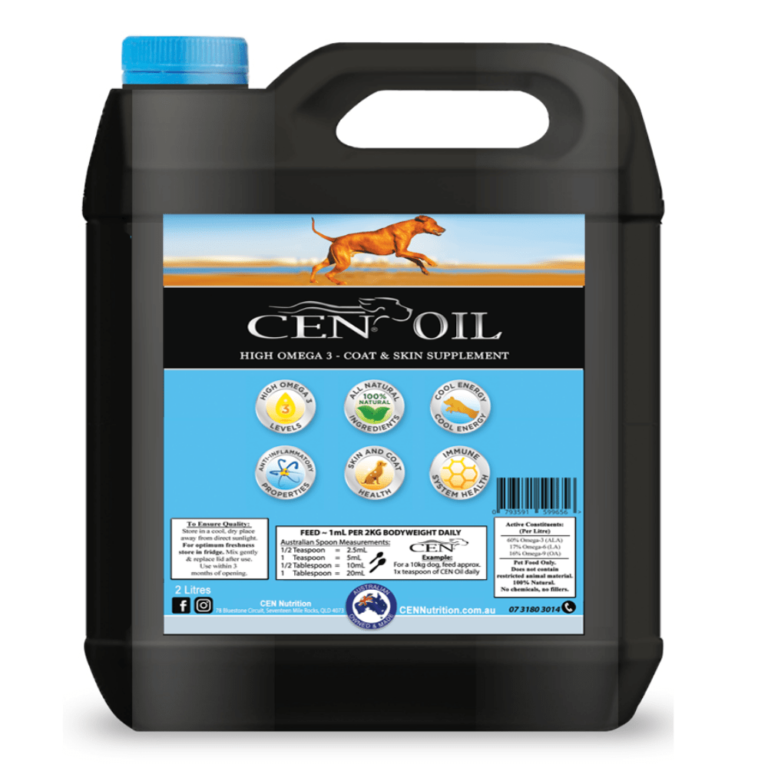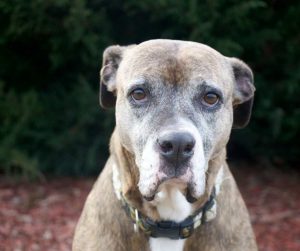
Anxiety is a common problem in dogs. In this article, we will discuss:
- Types of anxiety in dogs,
- How to help ease the anxiety in your dog.
TYPES OF ANXIETY IN DOGS
Anxiety in dogs is defined as a feeling of discomfort that ranges from mild to severe and depends on many reasons. The three most common reasons are:
- Fear and Phobias
- Separation Anxiety
- Age-related Anxiety
Dogs of all breeds can suffer from anxiety, and each individual suffers differently from the others. If your dog suffers from anxiety from time to time, don’t leave it untreated because it can lead to many serious behaviour disorders.
HOW TO TREAT YOUR DOG'S ANXIETY NATURALLY?
The foundation of the diet should be based upon raw or a healthy dry food, which is low in sugar and starch.
Another important aspect is digestive health and the gut microbiome health. As research progresses, there is a suggestion of your dog’s gut microbes have a huge impact on behaviour, and neural development.

CEN Oil is perfect to promote a calmer temperament as it does not contain any sugar or starch.
FEAR AND PHOBIAS
Fear is a natural response to any threatening situation, and phobia is defined as an extreme fear of any condition. A dog can suffer from anxiety due to fear and phobias. Fear in dogs can occur due to many situations such as:
- Fear of unfamiliar loud noises.
- Fear of threatening animal.
- Fear of maternal separation.
- Fear of unfamiliar people.
- Fear of different places like veterinary clinic and beach.
SEPARATION ANXIETY

In a recent study, it was found that one in 10 dogs suffers from separation anxiety.
Separation anxiety is more common in dogs that are very attached to their owners. Sometimes separation anxiety in dogs occurs due to a change in the daily routine at home or a change at home.
Separation anxiety can cause many behaviour problems in dogs. Dogs generally begin to show signs of separation anxiety 15-20 minutes after the owner’s departure. Some dogs even start to get anxious as soon as they see their owner getting ready to leave. Similarly, when the owner returns home, the dogs get very excited, and it is difficult to calm them down.
AGE-RELATED ANXIETY

Age-related anxiety is more common in older dogs and can be associated with cognitive dysfunction syndrome (CDS).
Dogs suffering from age-related anxiety show signs of memory loss and zero learning. These conditions can cause anxiety and confusion in pets.
BEHAVIOURAL TRAINING TO EASE ANXIETY
Anxiety in dogs can be easy to treat if diagnosed early. You can do things like behavioural training. It is recommended to train your dog from an early age and try to change his negative association from being alone to something positive.
You can leave your puppy with something he likes, like chew toys or food puzzles. Similarly, train them from a young age to live alone for a few hours so that they do not suffer from it in the future.
Anxiety in the dog is a common problem. Only give your dog anti-anxiety medication in extreme cases of anxiety. Your dog can be affected by anxiety for a number of reasons. You should contact your veterinarian if you notice any signs of anxiety for diagnosis and treatment.

